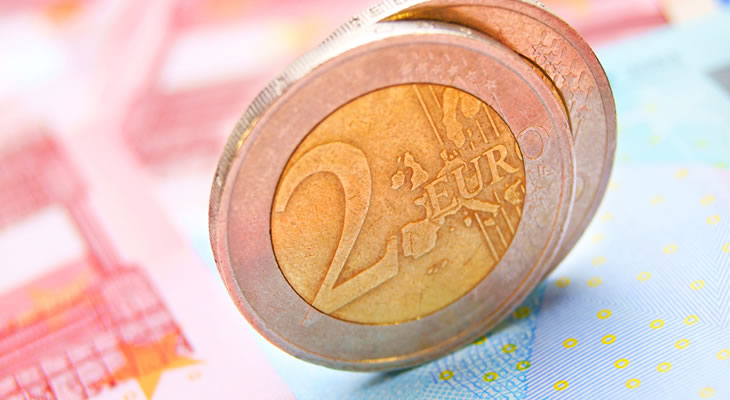GBP/EUR Exchange Rate Flat following latest German Data
The Pound Euro (GBP/EUR) exchange rate is trapped in a narrow range this morning amid mixed economic data from Germany.
At the time of writing the GBP/EUR exchange rate is trading at around €1.1676, virtually unchanged from this morning’s opening rate.
Euro (EUR) Muted on Mixed German Data
The Euro (EUR) is trading sideways this morning amid a plethora of mixed German data.
Most notably, retail sales in January printed well below expectations, coming in at -0.4% rather than increasing by 0.5% as forecast.
This comes off the back of December’s plunge of 1.6%, and suggests consumer spending continues to fall in the Eurozone’s largest economy, hobbling EUR exchange rates this morning.
Although Germany’s unemployment figure for February held steady at a seasonally adjusted 5.9%, unemployment remained at its highest level since May 2021.
Looking ahead, investors are likely awaiting the latest German inflation data, due out this afternoon.
With forecasters predicting that inflation in February has cooled from 2.9% to 2.6%, this may undermine EUR exchange rates later this afternoon.
Pound (GBP) Subdued despite Hawkish BoE Comments
The Pound (GBP) is holding steady this morning against the majority of its peers despite the release of some hawkish commentary from Bank of England (BoE) policymaker, Catherine Mann.
Mann is one of the more hawkish members of the Monetary Policy Committee, and was one of the two policymakers to vote for another rate hike during last month’s interest rate decision.
Yesterday afternoon, Mann discussed consumer spending habits and its impact on inflation, and told the Financial Times that Britain’s wealthiest consumers are making it ‘harder to curb inflation’, reinforcing her stance on tighter monetary policy.
Mann explained:
‘Consumers discipline what firms can price – they can’t pay for it, or they choose not to. There is not a lot of consumer discipline on a large enough fraction of categories of services to represent active deceleration in services price inflation.’
Whilst Mann’s comments have helped keep GBP exchange rates afloat this morning, an absence of economic data is limiting the Pound’s movement.
Looking ahead, likely to drive GBP exchange rates tomorrow will be the release of the latest UK manufacturing PMI.
Friday’s PMI figures are expected to confirm that the index only rose from 47 to 47.1 in February.
Should the index confirm that UK manufacturing remained in contraction territory, this may hobble Sterling’s trade towards the end of the week.


Comments are closed.